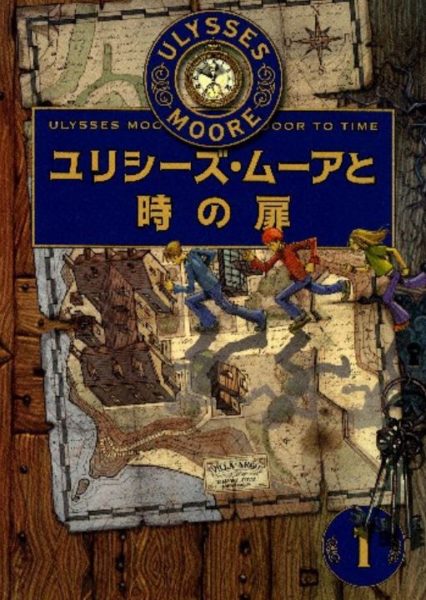The Changing Scope of Japan’s Book Industry
CONTENTS
By Ryoji Shimada
Japan’s Biggest Book Fair
The 23rd Tokyo International Book Fair was held the first week of July, 2016. This four-day exhibition with three other parallel activities --- e-Book Expo Tokyo, Licensing Japan and Creator Expo --- attracted an estimated total of 66,000 people, according to the organizer. While it is not certain if such a turnout can be regarded as large or small, many regular exhibitors voiced disappointment over the number of visitors this year.
“This is my fifth year, but each time I've attended the number of visitors declined from the year before,” complained an Asian exhibitor. “I was not surprised last year, because of the 3.11 earthquake, but I can clearly see the turnout this year is less,” remarked a clearly annoyed European exhibitor.
The first-time exhibitors, on the other hand, appeared to be rather satisfied. A staff member of Mediak, an American company which showcased personalized learning-English video products, told me happily that he already made several potential Japanese tie-ups and set up a sales channel to market products in Japan. Ai Yomogita, who works for WORD, an editorial production house, said with a smile, “This is our first try to look for prospective clients and I was contacted by a couple of companies about production of their company brochures.”
Whether first timers or repeaters, a diverse mix of exhibitors were on hand. While publishers were the main players, many other organizations operated booths, including editorial companies, proofreading services, newspapers, printing companies, political groups, religious organizations, artist groups, copyright agencies and foreign embassies. Some were not related to publishing at all. One middle-eastern embassy participated just to conduct publicity. But such a varied mixture perhaps serves as representative of today’s book industry in Japan.
Unchanged Demand But Dwindling Market
According to the Yano Research Institute, the market of books and magazines in Japan during 2015 amounted to 1,871 billion yen ($23.3 billion), down by 2.6% from the previous year. Compared with revenues of 2,324 billion yen ($29 billion) 10 years ago, the market has declined by nearly 20%. Some have attributed this progressive decline to people’s lack of interest in reading, but the actual cause appears to be a swelling “bubble” of new players.
BOOK OFF, Japan's largest second-hand bookstore chain, with over 900 outlets nationwide, boasted annual sales of 75 billion yen ($930 million) in 2016. The number of libraries is also on the increase which increases the number of books borrowed. According to the Ministry of Education, Culture, Sports, Science and Technology, more than 630 million books were borrowed in 2014, up by 10% from four years ago. Also it is not difficult to imagine that the Internet plays a significant role in meeting people’s reading demands. And last but not least the emerging ebook industry certainly is making an impact on the market. According to Impress R&D, the 2016 market for ebooks reached sales of 62.9 billion yen ($780 million) and is expected to grow up to 200 billion yen ($2.5 billion) in 2020. In fact, in contrast with the rather staid ambience of the Book Fair, e-Book Expo Tokyo drew much more attention and lots of media coverage.
People’s interest in reading hasn’t changed, but the way or medium of reading has. Further, the attractiveness of the market has also unchanged.
Challenge from Outside
“Japanese market is very big, but very competitive too,” said George Kokolas, a representative of Express Publishing ELT Books. This British company took part in the Book Fair to look for Japanese partner companies to distribute their English learning products in Japan. “Japanese way of learning English wasn’t communicative before. They stressed reading and writing. But this trend has been changing. Our products focus on practical communication. There should be a market demand for us,” said Kokolas, with some expectation.

Instituto Italiano di Cultura was a 6th-time participant this year. This institute designated by the Italian government represented many Italian publishers by showcasing each publisher’s various titles in its booth. “We are here to help Italian publishers find Japanese publishers who want to buy copyright of their books. There are more than 400 titles from nearly 40 publishers,” said Masako Toyoda, a staff member. “The number has increased a lot from the first time.”
It is said that it takes a long time to negotiate and finalize a deal with a Japanese counterpart. But with the institute’s orderly commitment to the long haul, successful deals have been built up and the number of publishers has increased.
This time the Institute came up with a new attempt. It has distributed free samples by 10 Italian authors. A sample translated into Japanese is available on the Net.
“We hope many more Japanese publishers as well as members of the general public will become interested in Italian books,” said Toyoda.
Japanese books going international
The Taiwan Publishers Association has participated in the Book Fair from the beginning, so this year was their 19th participation. Every year they have a theme and this year’s was “Culture and Tourism.” They came to exhibit Taiwanese publications mainly on this theme and also to search for good Japanese titles to import for translation.
“We have translated many Japanese books into Chinese,” a female staff member said. “Especially tour guidebooks and business-related books have been popular.” Behind the popularity, Japan is a major overseas destination for tourists from Taiwan, which also enjoys close economic ties with Japan. The staff member added that many Taiwan publishers’ staff also attended the fair individually in search of good Japanese book titles.
The Republic of Korea is also an avid seeker of Japanese publication. “This year’s theme is traditional Korean folktales. Culturally the two countries are very close, so I believe Japanese people can immerse themselves in those folktales,” said Ji-Yeon Lee from Korean Publishers Association. She mentioned linguistic similarities as being one of the main reasons why many Japanese titles are translated into Korean. “Translations are fairly easy and Japanese books are well-made and quite well illustrated. We often use the same cover design and illustrations. Sometimes only the language is different.” Normally in the case of translations, the cover design, illustration or book dimensions of the translated versions differ from originals.
One Indian exhibitor also gave a rave review of the Japanese publication culture. Binny Kurian, a staff from Indian government affiliate publisher association, said, “The Japanese are generally very industrious and most of their publications are in Japanese. That’s a main element behind the strong market. In India, 40% of the publications are in English but the rest are in as many as 30 indigenous languages.” But he raised the price issue and thought books in Japan were rather expensive. In India, book prices are kept low so books will be affordable to people in lower economic rungs and mobile libraries that travel around the countryside are common. He went on to point out another downside of Japanese publications. “In Japan there are many good writers like Kawabata Yasunari and Oe Kenzaburo who are Nobel laureates, along with Yukio Mishima and Haruki Murakami, and so on. But I see many comics and manga. And sometimes they are pornographic.” He didn’t think all the comics are bad. In fact, Ninja Hattori-kun is gaining popularity in India.
Alireza Shakeri from the Iran Culture Center agreed. “I have been in Japan for more than 10 years and send my kid to a Japanese school. But erotic manga are available everywhere. At racks in convenience stores kids can take in those kind of comic magazines, and on trains, they can see raunchy advertisements. That’s a big problem,” he complained. But Shakeri also found some worthwhile children's books. “I saw a brilliant children's book at a hospital waiting room. I forgot the name, but I want to translate it into Persian.”
Binny Kurian made efforts to invite Japanese publishers to the World Book Fair in New Deli, India which after Frankfurt is supposed to be the world's second largest trade show for publishers. Especially in 2020 Japan will be the theme country. “I have contacted various Japanese governmental organizations like the Japan Foundation,” he says. “We hope private entities will participate in the World Book Fair as well. We have a huge market.” India is the third largest English publication market after the United States and Great Britain. Amidst the vicissitudes of Japan’s publication world and with the advancement of electronic books, perhaps Japan should give more consideration toward potential foreign markets too.


